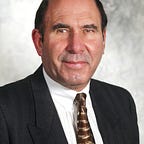NEW ORLEANS IS A BROKEN HALLELUJAH
Joel B. Levine MD
I have never lived in the South but it knows me. I came to New Orleans imaging that it was only of the moment. But, here, hope and failure contend for the same space and past and present wrap around each other across a stave of musical notes. Desires grow as botany for dreams. It is their decay that greets you with the paradox of smelling sweet.
In the North, fear pushes everything forward hoping that running faster will lift you by the buoyancy of success. In New Orleans gravity is made of heavy air and inevitability; dank suits sticking to your skin, feet rubberized to the hot street, the wilting of almost everything and the final brushing away of old bones to make room for new.
The city is filled with welcoming people who show how privacy becomes a social grace. Conversation, melodic and fragrant, is a doorway held open just for a moment. Behind the walls, behind the words, most of life resides. Fences are everywhere and keep the unseen concentrated and savored. Like the mysteries of the roux, much is loved when it is darkest. You sense that if you are attentive here, it will show you a trick to life, a slight of hand that makes sadness disappear.
So much you see is affirming and so much broken. Banquettes, cracked even upon cracks, become literal street art. Poets, playing Cyrano, find words for each Christian passing by. Ice cream vendors use lines from Wallace Stevens to make him, not merely his poem, true emperor of ice cream flavors. Yet, one glance away, a human misery is half swallowed by that same doorway, just at the moment of a barely heard song.
The brown water of the Mississippi runs with no pretense of serenity. When you see it, you know that indifference is to be washed away, without warning, by the rush of water or the rush of life. Yet New Orleans keeps you from the sins of forgetfulness and regret and people, in defiance, will dance in the street.
A woman was walking on Royal, well into her sixties. She was on her way to somewhere when she suddenly knew where she needed to go. She traveled inside, bringing the street music to the parts of her brain that made her feet move. Short rhythmic steps, notes up from the cement into her core. I marveled at how she had gotten so free. She danced on, in perfect time to the music of her own life and she became the saddest Bojangles you would ever see.
I went to a bar to get closer to that music. Bar dark, body heated, purposeful. Blood made sound. A Brass Band levitated by the hands of an illusionist city. At least Cohen gave you a choice between a holy and broken Hallelujah.
